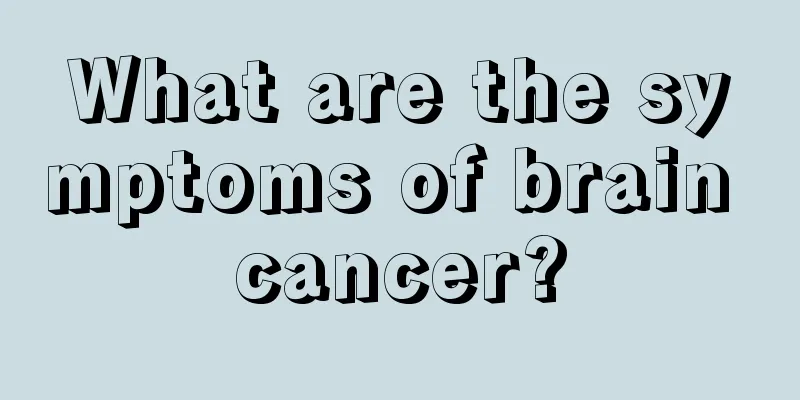What are the symptoms of brain cancer?

|
It is generally believed that "headache, vomiting, and papilledema" are the three main symptoms of brain tumors. We remind everyone that if any of the following symptoms occur, you should try to rule out the possibility of a brain tumor: 1. Chronic progressive headache. Brain tumors are intermittent in the early stages, with throbbing pain and distending pain, which mostly occur at night or early in the morning, and often wake the patient up from sleep. Each attack lasts for several minutes or hours. As the tumor continues to grow, the pain intensifies and gradually turns into a persistent one. Any activity that can increase intracranial pressure, such as exertion, excitement, coughing, sneezing, vomiting, and straining to defecate, will aggravate the headache symptoms. Changing body position will also affect the severity of headaches. For example, when standing, brain pressure can be relatively reduced, and pain is relieved; when lying, brain pressure is relatively increased, and pain is aggravated. 2. Severe headaches are accompanied by nausea and vomiting, and the headache will be relieved in a short period of time after vomiting. 3. Non-ophthalmological diseases such as decreased vision, diplopia, strabismus, visual field (vision range) defect or unilateral eyeball protrusion. Hemianopsia, one eye can see things, but the other side cannot. When the tumor directly compresses the optic nerve, not only will the vision suddenly decrease, but also blindness may occur. This is also an early symptom of brain tumor. 4. Patients who have had malignant tumors in other parts of the body and gradually develop headaches, vomiting, or hemiplegia, such as brain metastasis of lung cancer or choriocarcinoma. Brain tumors are divided into benign and malignant, and they are distributed throughout the skull, so the symptoms they cause are also varied. The most common symptoms are dizziness, headache, limb numbness and weakness, speech dysfunction, etc. Some people also experience epilepsy and cognitive dysfunction, and some people even directly lead to coma symptoms. Intracranial tumors grow in different locations and are very strange. The most clear way is to do a head CT and head MRI, which can clarify the nature of 80% of intracranial tumors. At present, surgical resection is still the main treatment for brain tumors. In this way, based on the postoperative pathological changes, it is decided whether to conduct further radiotherapy or chemotherapy. |
>>: How to care for bladder cancer patients after surgery
Recommend
What are the advantages and disadvantages of facial acupuncture?
Many people may not know about facial pulling, wh...
Can spinal cord injury be cured?
With the improvement of people's living stand...
Take a deep breath and there will be a sound of wind in the lungs
If you feel a drafty sound in your lungs when you...
What should I do if my front teeth fall out
Life is bound to have its ups and downs. The road...
Feeling itchy after tapping the meridians on the legs
There are six important meridians in the human le...
How to treat candidal paronychia
Candidal paronychia is a relatively common diseas...
Did you know that alpha-fetoprotein is a key indicator for liver cancer detection?
Mr. Zhang is an ordinary office worker with a bus...
What are the dangers of long-term vomiting?
Vomiting is a very common phenomenon in daily lif...
What should I do if my scalp gets burned after bleaching my hair?
Loving beauty is human nature, especially in this...
What causes bad breath
If you have some diseases in the oral cavity, it ...
What is narcolepsy and what are its clinical manifestations
There are more than 50,000 confirmed cases of nar...
Does breast cancer require mastectomy?
Breast cancer does not necessarily require mastec...
What are the transmission routes of Hepatitis B
Everyone knows that there is a difference between...
One of my eyebrows is particularly long
If the eyebrows are particularly long or white, m...
How to exercise foot muscles
We all know that feet are a part of the body that...









